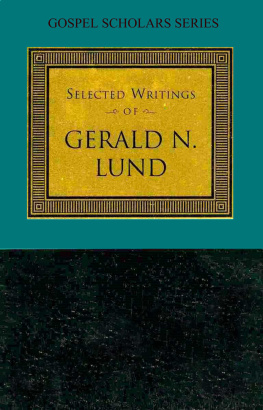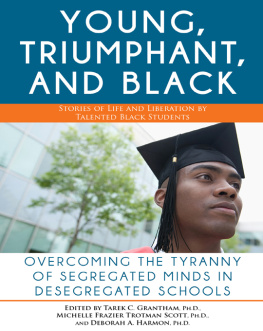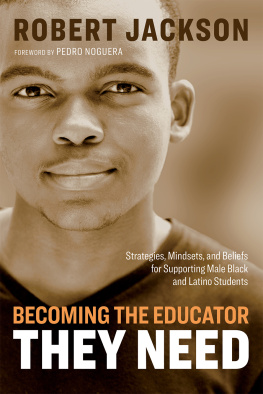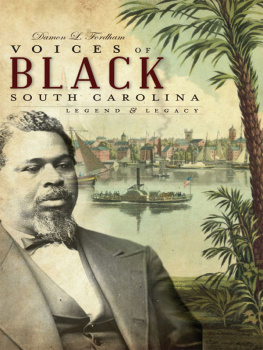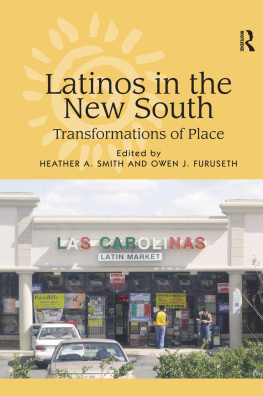The publication of this book has been aided by a
grant from Kentucky State University.
Copyright 1994 by The University Press of Kentucky Scholarly publisher for the Commonwealth, serving Bellarmine College, Berea College, Centre College of Kentucky, Eastern Kentucky University, The Filson Club, Georgetown College, Kentucky Historical Society, Kentucky State University, Morehead State University, Murray State University, Northern Kentucky University, Transylvania University, University of Kentucky, University of Louisville, and Western Kentucky University.
Editorial and Sales Offices: Lexington, Kentucky 40508-4008
Library of Congress Cataloging-in-Publication Data
Smith, Gerald L., 1959-
A Black educator in the segregated South : Kentuckys Rufus B. Atwood / Gerald L. Smith.
p.cm.
Includes bibliographical references (p. ) and index.
ISBN 0-8131-1856-5 : (alk. paper)
1.Atwood, Rufus B., 1879.2. Kentucky State College (Frankfort, Ky.)PresidentsBiography.3. Segregation in higher educationKentuckyHistory.I. Title.
LC2851.K4171929.S631994
378.111dc2093-5993
[B]
Acknowledgments
While writing and researching this book, I received significant advice and support from several people. Thus, I take this opportunity to convey my appreciation for the contribution they made toward the completion of this study. Humbert S. Nelli has been my teacher and friend. He directed this study as a doctoral dissertation, and when I was a graduate student he fine-tuned my research skills and demonstrated unwavering confidence in my academic abilities.
I am especially appreciative of the comments and suggestions I received from James C. Klotter, Joe M. Richardson, and George C. Wright. Each read the manuscript carefully and provided invaluable insights as to how it might be improved. While their comments contributed to bettering the quality of this work, they are not responsible for any of its weaknesses.
Several other scholars read part or all of the manuscript at various stages. Thomas H. Appleton, Jr., Margaret M. Caffrey, Aingred Dunston, Kenneth W. Goings, and Robert Randall made important and helpful comments regarding my work on Atwood. I believe the book also benefited from constructive criticisms offered by members of the University of Kentuckys History Department as well as by participants in the faculty seminar at Memphis State University.
While researching this book I received noteworthy assistance and cooperation from the following institutions: Paul G. Blazer Library, Kentucky State University; the Department of Special Collections and Archives and the Oral History Program, University of Kentucky; Drain-Jordan Library, West Virginia State College; Ekstrom Library, University of Louisville; Frederick Douglass Library, University of MarylandEastern Shore; Forrest C. Pogue Library, Murray State University; Fisk Memorial Library, Fisk University; John Willard Brister Library, Memphis State University; John Grant Crabbe Library, Eastern Kentucky University; Kentucky Department For Libraries and Archives, Frankfort; Louisville Free Public Library; the Library of Congress and the National Archives, Washington, D.C.; W.R. Banks Library, Prairie View Agricultural and Mechanical University; and Western Kentucky University Libraries, Bowling Green.
The following people assisted my efforts to ascertain library sources: Dorthy Bailey, Terry Birdwhistell, Deborah Brackstone, Donald Bradsher, Elizabeth Buck, Bill Cooper, Charles Hay, Karen McDaniels, John Moore, Elizabeth Scobell, Frank Stanger, Jeff Suchanek, Venita Swetnam, and Joyce Thornton. Had it not been for their familiarity with the holdings in their respective libraries I may have overlooked important sources.
Memphis State University played an important role in this study. A Faculty Research Grant and travel funds from the History Department allowed me to visit repositories and collect valuable information. My research efforts would have been more difficult had it not been for these resources. I am also grateful for financial support from the University of Kentucky.
Although I found writing and researching a book to be a lonely and challenging experience, it was made easier as a result of the encouragement I received from friends, family, and those who knew Rufus Atwood. A special appreciation is extended to the descendants of the Atwood family. Rufus Mitchell, Roy Mitchell, and Marilyn Nelson Waniek generously opened family archives and engaged in conversations that enhanced the success of my research.
Along the way, my colleagues Linnea Burwood and Katherine Jellison listened to my worries and tolerated my anxiety attacks as I completed the manuscript. Thus, to them I say, thank you. I am also appreciative of the support I received from my cousin, Darrell Williams, who welcomed me into his home during my research visit to Washington, D.C. As I worked on this study Darrell was always willing to engage in stimulating telephone conversations about my work on Atwood or any other issues relating to African-American history. Unfortunately, my best friend, William Lewis, who was like a brother to me, did not live to see this book published. Dedicating the book to his memory is an expression of my appreciation for our friendship and the genuine interest and support he demonstrated while I worked on the manuscript.
Finally, I acknowledge my appreciation to my family, in recognition of their support and patience as I worked on this book. I can truthfully write that they were always there when I needed them most. I am especially grateful for my wife, Teresa, who encouraged my work and yet, somehow, managed to shoulder the responsibilities of motherhood and maintain a successful career even while I was busy writing or researching. I also want to thank my mother and father, Romanno and Mary Crawford, my grandmother, Mamie Mayfield, and my mother- and father-in-law, Clifton and Octavene Turner, who believed that this book would one day be published. My daughter, Elizabeth, is too young to remember the many hours I spent working on this book, but her presence gave me the added incentive I needed to complete this volume. Thank you, Elizabeth. I hope you will one day be proud of your father for having written this biography.
A Black Educator in the
Segregated South





